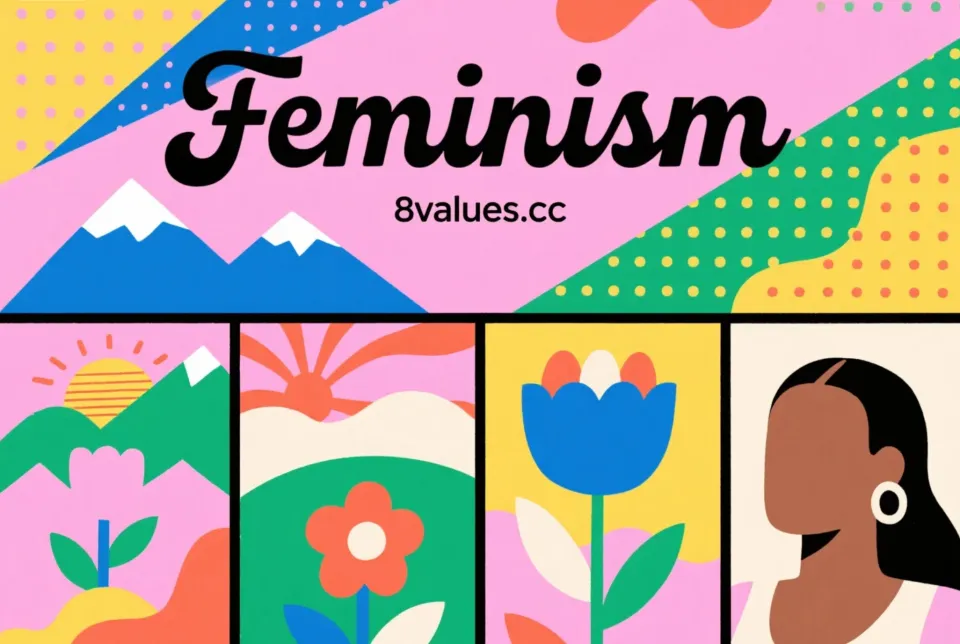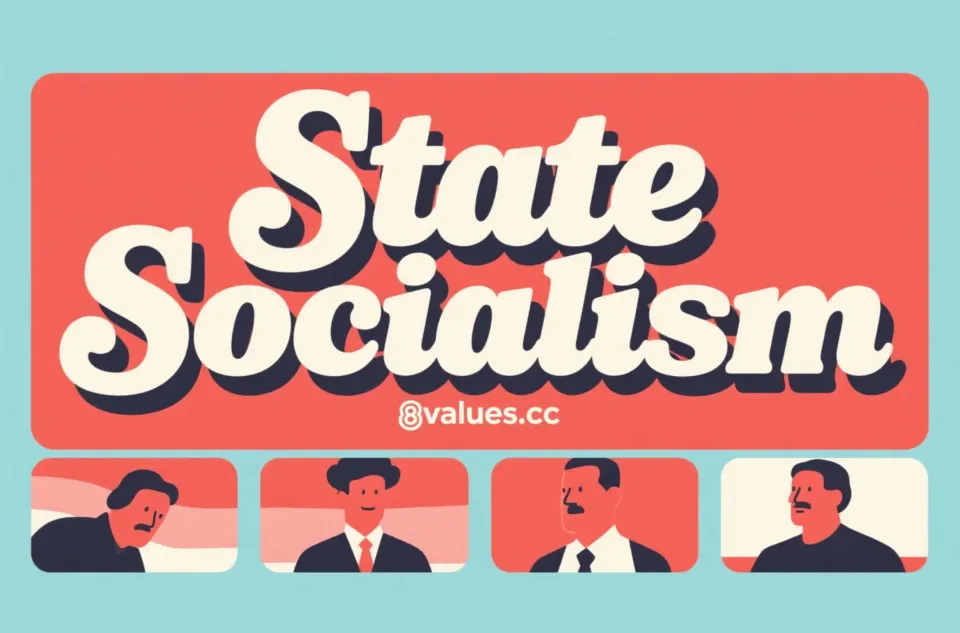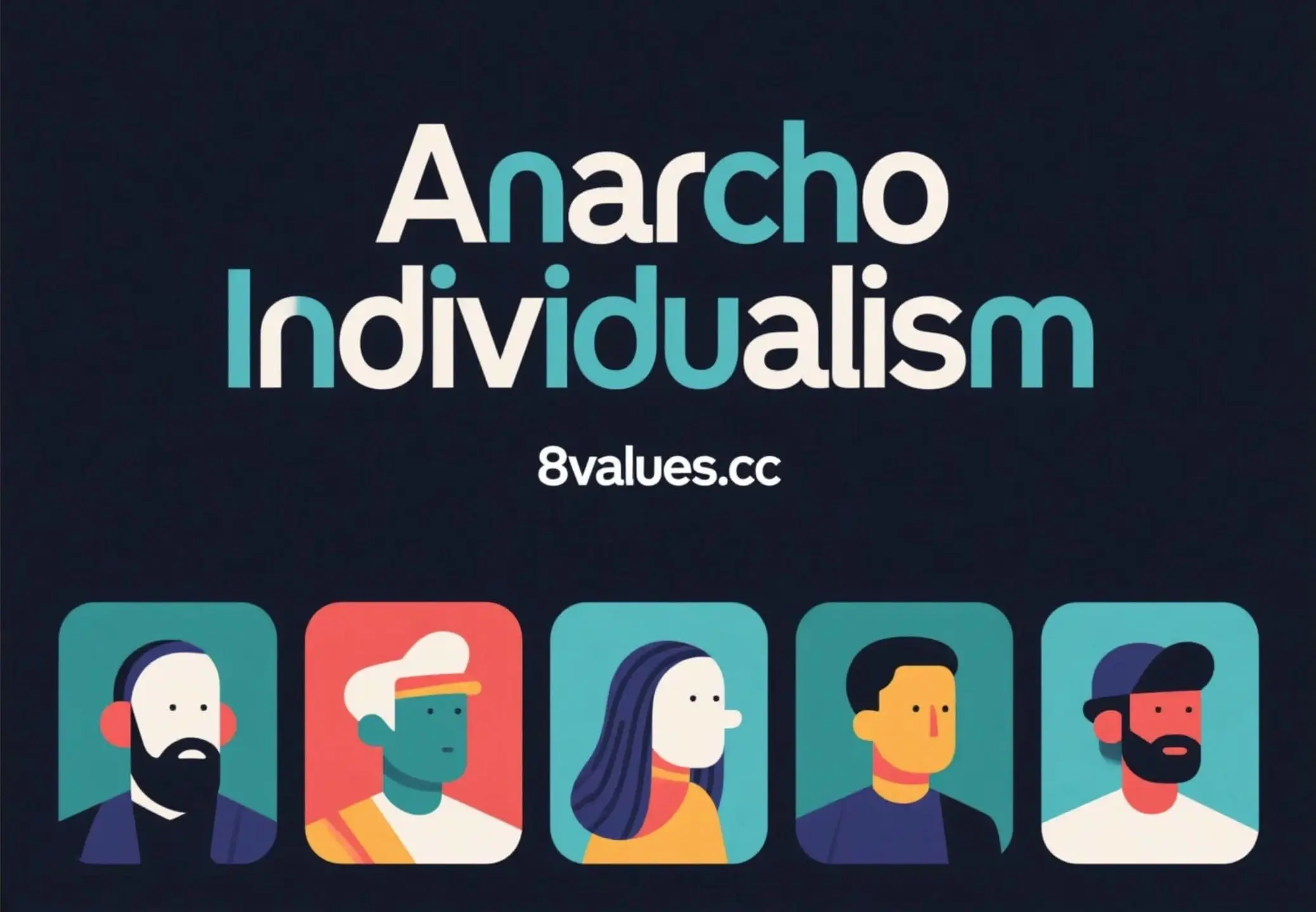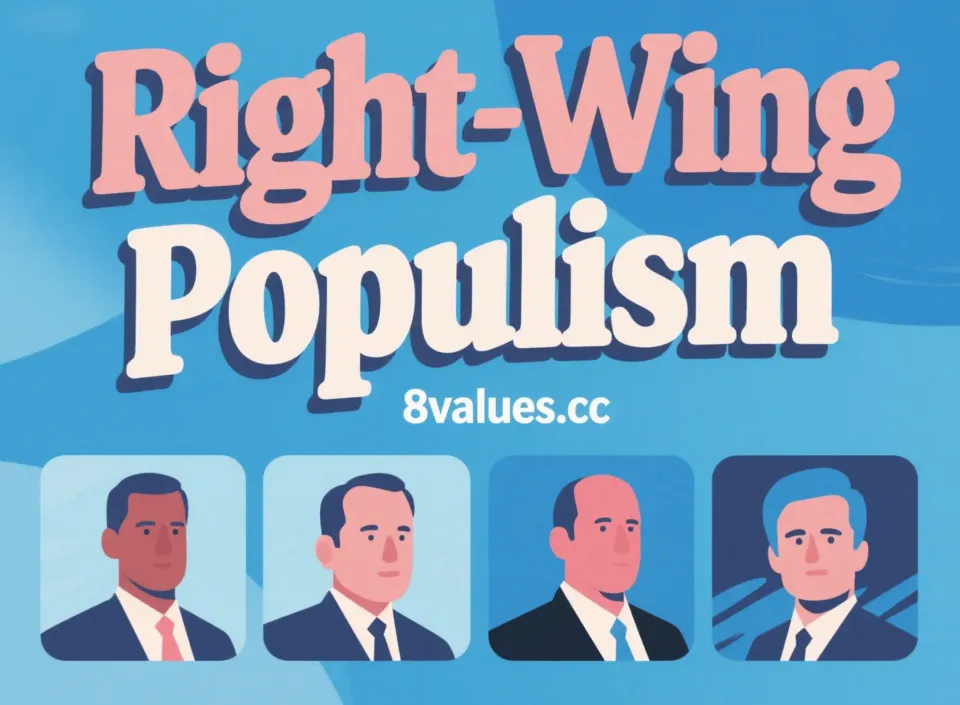A deep understanding of feminism: a diverse idea and movement to pursue gender equality
Feminism is a global social, academic and cultural movement aimed at pursuing gender equality. This article will deeply explore the definition of feminism, historical evolution, diverse schools, core concepts and its far-reaching impact on all aspects of society, helping you to fully understand this complex and important political idea. Want to have a deeper understanding of your position in the political spectrum? You can try the 8values Ideological tendency test, explore your core values, and understand how different ideologies echo your beliefs.
What is feminism? Feminism is a series of socio-political movements and ideologies that aim to define and establish gender equality at the political, economic, personal and social levels. It argues that the patriarchal structure is widespread in modern society, prioritizing the male perspective, leading to unfair treatment of women in these societies. The goal of feminism is to challenge and change this status quo, by eliminating gender stereotypes and improving women’s opportunities and outcomes in education, careers and relationships, and ultimately creating a society that is friendly, just and equal to all genders.
The historical evolution of feminism: from budding to wave of diversity
The roots of feminist thought can be traced back to the early days of human civilization. As early as the 15th century, French writer Christina de Pisan wrote a book to criticize misogyny and the lack of education for women. The 18th century Enlightenment challenged traditional power structures, laying the foundation for questioning social norms, including female roles. Mary Wollstonecraft's Defence of Feminism in 1792 was regarded as the foundational work of early feminism, and she advocated that women should enjoy equal rights as men, including the right to education.
The complete history of feminism is usually divided into four "waves", each focusing on different issues and goals.
The first wave of feminism: the struggle for basic civil rights
The first wave of feminism occurred mainly from the late 19th to the early 20th century, and it occurred simultaneously with the Industrial Revolution. The core demands of this period were to fight for women's constitutional and political rights, such as the right to vote (i.e. the "suffering power" movement), the right to education, the right to possess property, and legally obtaining an identity independent of a husband. For example, the Seneca Falls Conference in the United States in 1848 marked the official beginning of the first wave of feminism. By the 1920s, women in North America and most European countries were granted the right to vote.
The second wave of feminism: expanding equality issues and challenging patriarchy
The second wave of feminism continued roughly from the 1960s to the 1980s. It builds on the first wave and expands its focus to broader issues of social, economic and cultural inequality, including workplace equality, internal family roles, reproductive rights, sexual harassment and domestic violence.
During this period, the book "Second Sex" published by the French philosopher Simone de Beauvoir in 1949 became the foundational feminist text. She proposed that the concept of gender of women is more of the result of social construction than the necessity of physiological characteristics. American writer Betty Friedan's 1963 bestseller The Mystery of Women reveals the problem of many women lacking life satisfaction due to their social roles. This wave put forward the slogan of "The Personal is Political", emphasizing that inequality in personal lives also reflects the power structure of patriarchy.
The third wave of feminism: embracing diversity and intersectionality
The third wave of feminism occurred in the mid-1990s. It serves as a continuation and reflection on the second wave, emphasizes individuality, autonomy, and challenges the limitations of the second wave of feminism that is sometimes considered too focused on the experience of middle-class white women.
During this period, the concept of "intersectionality" was proposed by Kimberlé Crenshaw in 1989 to explain the interweaving of different demographic characteristics such as race, class, gender identity, sexual orientation and disability, and how these factors work together and aggravate inequality and discrimination. The third wave of feminism also embraces diverse ideas such as queer theory, transfeminism and ecofeminism. It also focuses on the status of women around the world and promotes the inclusion of women's rights issues in human rights.
The Fourth Wave of Feminism: Action and Inclusion in the Digital Age
The fourth wave of feminism began in the early 2010s, with a distinctive feature of its high reliance on social media and digital platforms for advocacy and mobilization. The core issues this wave focused on include sexual harassment, sexual violence, workplace bullying, physical humiliation, and a more fully representative of marginalized groups (such as those with disabilities).
The MeToo movement is a prominent case of the fourth wave of feminism, which exposes toxic sexism and sexual harassment in the workplace through the Internet, sparking discussions about consent, accountability and oppression systems around the world. The fourth wave of feminism emphasizes inclusion, with a particular focus on the rights of trans and women of color.
The core principles and pluralism of feminism
Feminism is not a single theoretical system, but covers many schools of thought that have their own emphasis on ideology, identity and experience. However, the core of all genres revolves around gender equality and justice.
Core Principles: Gender Equality and Liberation
- Gender Equality : Feminism advocates equal rights, opportunities and treatment for all genders, challenging and eliminating gender discrimination.
- Female rights : Historically, feminism has focused particularly on the specific challenges faced by women, such as reproductive rights, economic gaps, right to education and access to health care.
- Intersection : Acknowledges that individuals experience different oppression due to the interweaving of multiple factors such as race, class, sexual orientation, and ability. Feminism strives to be inclusive and resolve multi-level discrimination.
- Critical Analysis : Feminism encourages a critical examination of social norms, institutions, and cultural practices to reveal and challenge structural biases that lead to oppression of women and marginalized genders.
- Body autonomy : Supports women to have the right to decide their own bodies, including the right to abortion and access to contraceptive measures.
- Ending Gender Violence : Feminists work to combat all forms of violence against women, including domestic violence, sexual assault and sexual harassment.
Main genre: Understanding the diversity of feminism
- Liberal Feminism : Also known as "mainstream feminism", it mainly focuses on achieving women's rights and social justice through legal and political reforms in existing social structures. It emphasizes equal opportunities for individuals in education, employment and political participation.
- Radical Feminism : Advocate patriarchy as the fundamental reason for women’s oppression and calls for a complete reorganization of society to eliminate male supremacy. Some radical feminists advocated Separatist Feminism, believing that the differences between men and women are difficult to reconcile and that men cannot make positive contributions to the feminist movement.
- Marxist & Socialist Feminism : It is believed that the capitalist system aims to maintain patriarchal hierarchy and lead to female subordinate status. They advocate gender equality by dismantling the source of oppression at the capitalist economic system and/or economic and cultural levels.
- Black & Multiracial Feminism : Focus on the unique experiences of black women suffering from racial and gender oppression at the same time. Multiethnic feminism aims to educate people about how race influences gender construction and oppression, and provides a feminist perspective on marginalized groups such as Asian, Latino and Black women.
- Ecofeminism : links women with the oppressive history and status quo of the environment, and believes that patriarchal society treats earth's resources exactly the same way as controlling women.
- Cultural Feminism : It is believed that women are born with evolutionary traits that are derogatory by mainstream culture but actually bring advantages to society. Critics believe it relies too much on the “essentialist” principle of gender dualism.
- Decolonial Feminism : Critical about the concept of gender and its patriarchy and gender dualism, believing that these structures were established and imposed by European colonialism for its own benefit.
- Postmodern & Post-structural Feminism : Using postmodern and post-structuralist theories, it believes that gender is constructed in language and there is no single female subordinate cause or solution.
Key concepts and social impact of feminism
Feminist theory explores many social structures and cultural phenomena in depth to reveal and challenge gender inequality.
Patriarchy and gender discrimination
Patriarchy is a central concept in the critique of most feminist genres, and it is defined as a social system in which society is organized around male authoritative figures, with men having privileges and women in a subordinate position. Feminists view patriarchy as an unjust social construct that can be overcome by critically analyzing its performance.
Sexism is another important concept of feminist understanding and criticism, which refers to perceiving and judging a person’s gender solely and discriminating on that basis. There are many forms of gender discrimination:
- Traditional sexism : Supporting traditional gender roles, demeaning women, using stereotypes that portray women as inadequate capabilities.
- Modern sexism : denies the existence of sexism, takes a negative attitude towards women's rights, and questions the effectiveness of women's claims.
- Neosexism : Defend discrimination against women based on abilities differences, such as viewing men as being more competitive in management or leadership positions, while ignoring the difficulties women face in society.
Intersectionality and multi-subjects
Intersectionality emphasizes that women's experiences are not single, but are intertwined by multiple identities such as gender, race, class, sexual orientation, and physical ability, which together constitute a unique experience of oppression. This concept allows feminism to understand inequality more comprehensively and fight for rights for marginalized groups.
Impact on all aspects of society
The feminist movement has brought about significant social changes in Western societies and even globally.
- Civil Rights and Law : Promotes women’s right to vote, education, property rights, the right to file divorce lawsuits, and the right to make personal decisions on pregnancy issues (including access to contraceptive measures and abortion). Feminist jurisprudence challenges gender biases that exist in legal interpretation.
- Workplace and Economy : Fight for equal opportunities for women in the workplace, equal pay for equal work, and oppose gender-based occupational segregation.
- Language and Culture : Advocate the use of neutral language to reflect social equality and challenge the traditional concept of men as the “archaemotype” of human beings. Feminist fields such as art, literature, music and film have also flourished, challenging traditional narratives and showing female perspectives and experiences.
- Religion and theology : Feminist theology re-examines religious traditions, practices, and scriptures, aims to increase the role of women in priesthood and religious authority, reinterpreting male-dominated imagery and language about the spirits.
- Scientific Research : Feminism criticizes possible male biases in traditional scientific discourse and promotes in-depth research on gender biology and social construction.
- Masculinity and Masculinity : Feminist theory also explores the social construction of masculinity and its impact on gender equality, criticizes patriarchal culture’s restrictions on male life choices, and encourages men to participate in the feminist movement for wider liberation. Many men support pro-feminism.
Common misunderstandings and ongoing challenges of feminism
Although feminism has made significant progress, it also faces many misunderstandings and challenges.
Misunderstanding: Feminism is "hate of men" or "female supremacy"
A common misconception is that feminism is to make women over men or “hate men.” However, the core goal of feminism is always to pursue equal rights and freedoms for all genders, economically, socially and politically, rather than establishing a new hierarchy of power. When society prioritizes men for a long time, any change designed to achieve equality can be misunderstood as an attack. In fact, feminism also fights for rights for men, as it challenges unrealistic roles and expectations imposed by patriarchy on men.
The importance of "white feminism" and intersectionality
Historical feminist movements have been criticized for their exclusivity, especially in the early waves, focusing primarily on the rights of wealthy white women, while ignoring the multiple oppression of women of color and other marginalized groups. This phenomenon is called "white feminism". Therefore, the third and fourth wave feminism emphasizes more intersectivity to ensure that all women’s experiences and needs are visible and addressed.
"Post-feminism" and ongoing demand
Some believe that as women achieve legal and social equality in many ways, feminism is no longer necessary and has entered the era of "postfeminism". However, gender inequality remains widespread globally: women are underrepresented in political leadership, equal pay for equal work has not yet been achieved, cases of violence against women have not been significantly reduced, and the unpaid labor burden on women is heavier. This shows that feminism is still crucial in today's world.
Conclusion: 8 values and the future of feminism
Feminism is a growing and adaptable movement that is committed to addressing discrimination and inequality in all forms. Understanding the diverse schools and core principles of feminism will help us to understand the importance of gender equality more comprehensively and jointly promote a more just and inclusive society.
By gaining deeper understanding of these complex ideas, we can not only better understand the world, but also reflect on the role we may play in the pursuit of equality. If you are curious about your political tendencies and values, you are welcome to visit the 8values Political tendency test at any time, explore your unique ideological positioning through a range of questions, and discover what aspects of feminism coincide with your philosophy. You can check the 8values full results and a detailed interpretation of 52 ideologies in total to gain an in-depth understanding of the charm and connotation of different political thoughts. In addition, you can find more articles on political theory and its real-life applications in our blog . A deeper understanding of objectivism may bring you deeper thoughts about individuals and society.






